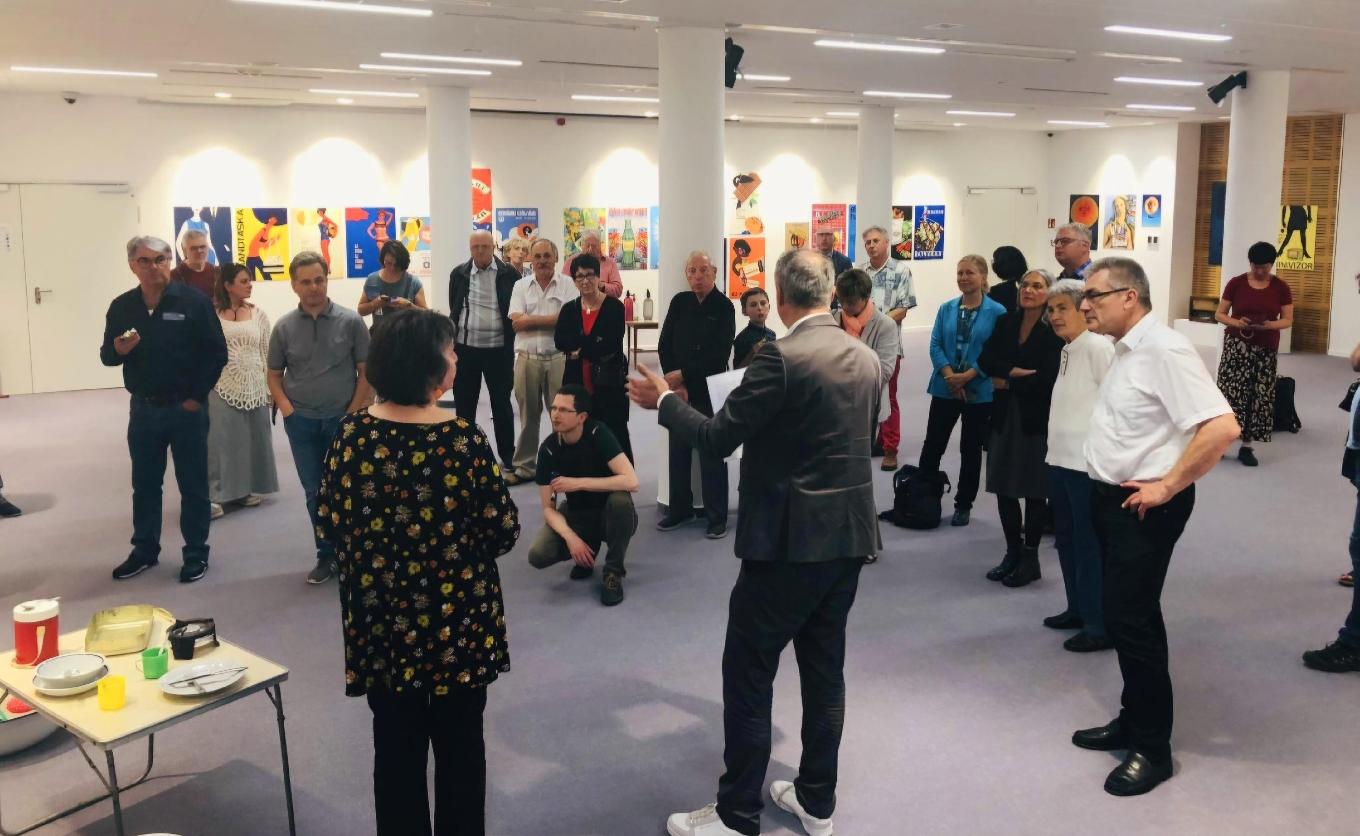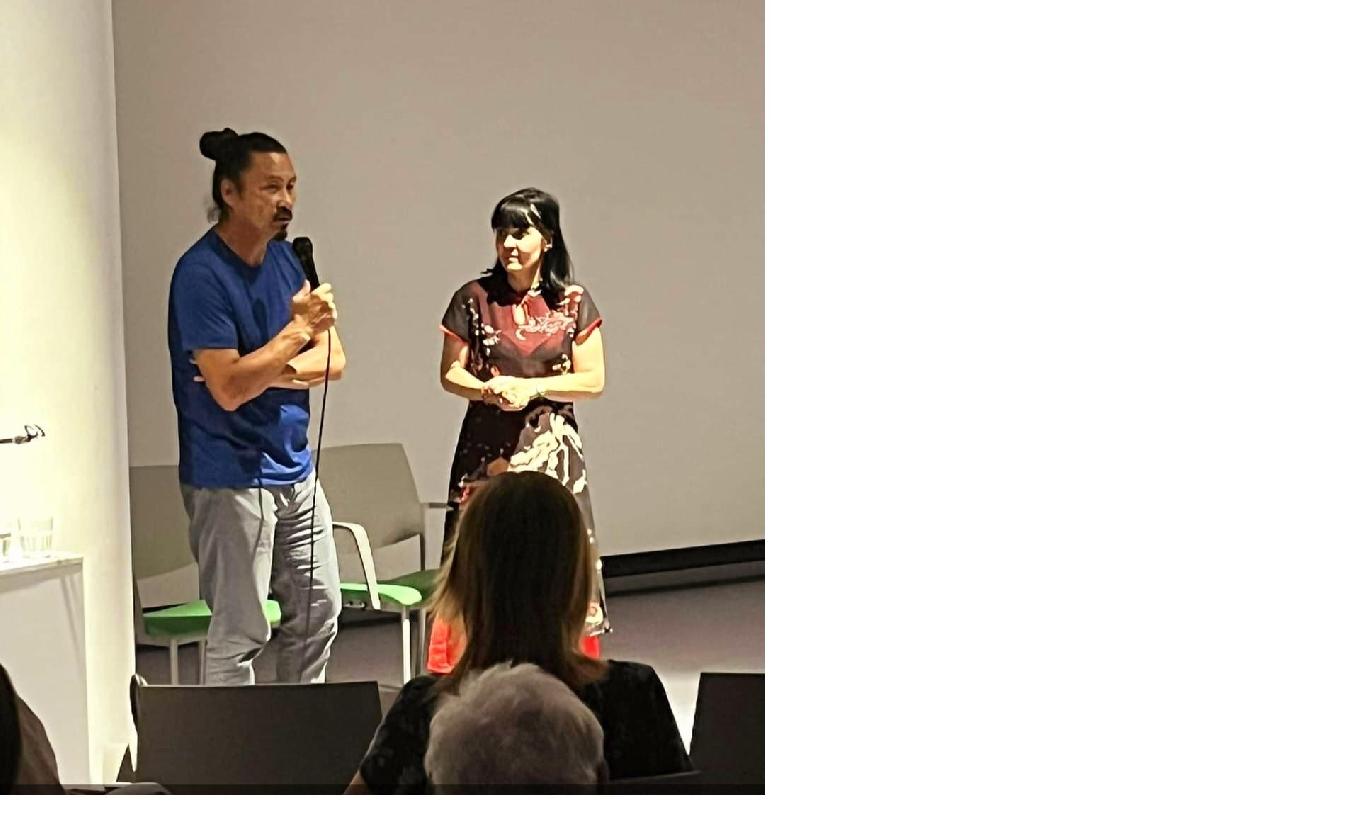
"For me, Lake Balaton is the Riviera!"
This summer, the Liszt Institute Stuttgart is stylishly presenting Lake Balaton through an exciting exhibition featuring old posters and retro exhibition items. They have also organized a concert by Elemér Duka and the Gypsy Chamber Orchestra. In the middle of the month, they held a lecture and a joint screening of the Germany-Hungary European Championship football match, and they prepared an international scientific conference for the Baden Hungarian Cultural Days. At the end of the month, with the help of Hungary's ambassador to Mongolia, visitors were able to gain insight into Hungarian-Hunnic-Mongolian relations at the Liszt Institute.
The Balaton retro exhibition opened at the institute on 6 June, 2024. For Hungarians, Lake Balaton is the "Hungarian sea", or as a hit song says: "For us, Lake Balaton is the Riviera". For Germans, Balaton is a symbol that during the "Gulasch communism" era was a meeting place for friends and families from the separated country, and it offered an inexpensive recreational opportunity for them. The poster exhibition, complemented by corners with retro objects, evokes the happier moments of our recent past and common history. The material compiled by Viktoria Herth was first launched in Veszprém, which was the European Capital of Culture last year. The exhibition can be viewed until 19 July, 2024.
On 13 June, 2024, Elemér Duka and the Gypsy Chamber Orchestra gave a concert at the institute. The young, talented, virtuoso cellist Elemér Duka and his chamber orchestra are a unique formation in their genre. The Gypsy Chamber Orchestra's repertoire ranges from classical works to exciting film music arrangements and folk song arrangements to composed versions of traditional Romani music. The members are: Elemér Duka (cello), Gyula Csík (dulcimer), Vilmos Duka (double bass), Gyula Bóni (viola). At the sold-out, highly successful concert, a greeting was delivered by André Raatzsch, Head of the Documentation Department of the Heidelberg Documentation and Cultural Center for German Sinti and Roma.
On 19 June, 2024, Prof. Michael Prosser-Schell gave a lecture at the institute entitled "History, Politics and Relations in the Period preceding the Germany-Hungary European Championship Group Match". The victory of the German national football team at the 1954 World Cup in Switzerland against the favorite Hungary is called the "Miracle of Bern". Now the two teams met again, which was a sufficient reason to discuss the current events and peculiarities of German-Hungarian relations. This was followed by a joint screening of the Germany-Hungary European Championship football match.
From 20-22 June, 2024, the institute organized an international scientific conference as part of the Baden Hungarian Cultural Days event series, titled "The Social, Historical and Cultural Role of the German Minority in Hungarian Villages". What are the structures according to which the Hungarian-German minority operates in Hungarian villages today? How does this community live, and what identity-forming phenomena can we observe today? How have German-Hungarian relations been shaped? These and other exciting questions were discussed at the conference by experts from Hungary, Austria and Germany.
On 24 June, 2024, the Stuttgart audience listened to a lecture by Dr. Borbála Obrusánszky, historian and Hungary's ambassador to Mongolia, and a film screening on the origins of Hungarian-Hunnic-Mongolian relations was held in Hungarian at the Liszt Institute. The film examined the Hunnic-Hungarian-Mongolian kinship and common historical past, and portrayed the mysterious Hunnic people, whose European role was of world-historical significance, but whose language we still do not know. The event offered a unique opportunity for the audience to delve deeper into the interconnectedness of ancient cultures and marvel at the diversity of history with the help of experts.



